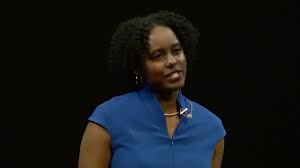Lindsay Wrege’s TEDx talk explores practical ways to build workplaces where diversity, equity, and inclusion thrive, revealing how organizations can create environments that uplift all employees. A must-read for leaders and advocates of DEIBJ.
Introduction: Why DEI Must Be at the Core of Modern Workplaces
In her TEDx talk, “How to Make Things Better with Diversity, Equity, and Inclusion,” Lindsay Wrege challenges companies to recognize DEI (Diversity, Equity, and Inclusion) as foundational—not optional. Wrege presents a compelling case for why fostering DEI is crucial to employee well-being, innovation, and overall business success. With real-world examples and a grounded perspective, she highlights the necessity of inclusivity at every level of organizational life.
I see Wrege’s message as a timely call for organizations to make DEI more than just a set of policies. DEI must be an active, intentional commitment woven into the organizational DNA. Wrege’s insights underline the simple truth that diverse voices lead to better ideas and stronger connections. When leaders champion these values authentically, it fosters a culture where every team member feels valued and heard, ultimately driving loyalty, engagement, and innovation.
For leaders, it’s time to re-evaluate: Are we genuinely inclusive, or are we just checking boxes? Consider how deeply DEI is embedded in your team’s culture and look for concrete ways to improve.
Cultivating Psychological Safety: Building a Foundation of Trust
Wrege stresses the importance of psychological safety, a key component of inclusive workplaces. When employees feel safe to express their ideas and perspectives without fear of judgment or retribution, they are more engaged, creative, and collaborative. Psychological safety isn’t just a “nice to have”; it’s essential for fostering diversity and inclusion.
Psychological safety is at the heart of effective DEI practices. Employees who feel safe are empowered to share unique insights, give feedback, and bring their authentic selves to work. Yet, building psychological safety requires commitment from leadership and a consistent, open-door approach to feedback. Organizations need leaders who are humble enough to learn from diverse perspectives and adapt. Wrege’s emphasis on safety resonates strongly in workplaces where fear of repercussions can stifle contributions and disengage team members.
Leaders should prioritize trust-building activities and practice transparency. Regularly invite honest feedback from employees at all levels, and ensure a supportive environment where speaking up is encouraged and valued.
Representation Matters: Creating a Workforce Reflective of Society
Wrege highlights the significance of representation, advocating for a workforce that reflects society’s diversity. She notes that when people from various backgrounds are seen in leadership and decision-making roles, it sends a powerful message of inclusivity and belonging.
Representation is not only empowering but crucial for holistic decision-making. When diverse employees see people like themselves in leadership, they feel that advancement and success are possible, boosting morale and aspiration. Moreover, a representative workforce brings a variety of viewpoints that enrich decision-making processes and increase an organization’s adaptability and resilience. Leaders need to be intentional in recruitment and development efforts to ensure diversity at every level, particularly within decision-making roles.
Take stock of your organization’s diversity, especially in leadership roles. Are there voices missing from your decision-making tables? Seek out ways to create pathways to leadership for underrepresented groups.
Equity in Opportunity: Ensuring Fair Access and Support for All Employees
Wrege emphasizes that equity goes beyond equality. While equality aims to provide the same resources to everyone, equity focuses on giving each person the specific support they need to succeed. Equity is about recognizing that individuals start from different places and require tailored resources.
Equity is essential for creating an environment where all employees can thrive, regardless of their starting points. Wrege’s message here is one of intentional support: organizations must assess individual needs and provide tailored resources to close gaps. For instance, providing mentorship, specialized training, or additional resources for those from marginalized groups can foster a truly inclusive environment. When organizations strive for equity, they empower employees to contribute fully, benefiting both the individual and the company.
Examine your organization’s support structures. Are you providing equitable resources to all employees, particularly those who may face unique challenges? Consider mentorship programs or targeted professional development initiatives to bridge existing gaps.
Inclusive Communication: Building a Culture of Respect and Openness
Wrege underscores the importance of inclusive communication, encouraging teams to communicate with empathy and understanding. She advocates for active listening and ensuring that all voices are heard, particularly those from underrepresented groups.
Communication is a critical tool for DEI, yet it’s often overlooked. True inclusion means fostering an environment where every voice is respected, and team members actively engage in open dialogue. Wrege’s focus on empathy and listening reminds us that inclusive communication builds stronger, more cohesive teams. When team members feel listened to, they are more likely to contribute fully, which strengthens organizational culture and morale.
Foster an environment of active listening. Encourage team members to listen and engage with empathy, ensuring every voice has space to be heard and valued. Consider implementing communication training focused on DEI to help establish these practices as a standard.
Conclusion: Embracing DEI as a Path to Success and Fulfillment
In her TEDx talk, Lindsay Wrege delivers a compelling message: DEI is not just beneficial; it is essential to creating workplaces where people feel valued, engaged, and ready to bring their best selves. By embedding DEI principles into every aspect of our organizations, we’re not only making our workplaces stronger but also preparing for a more empathetic, innovative future.
Leaders and organizations, ask yourselves: Are you doing enough to create spaces where diversity, equity, and inclusion can truly flourish? If not, it’s time to make meaningful changes that prioritize these values, ultimately leading to healthier, more successful, and more fulfilling workplaces.






























